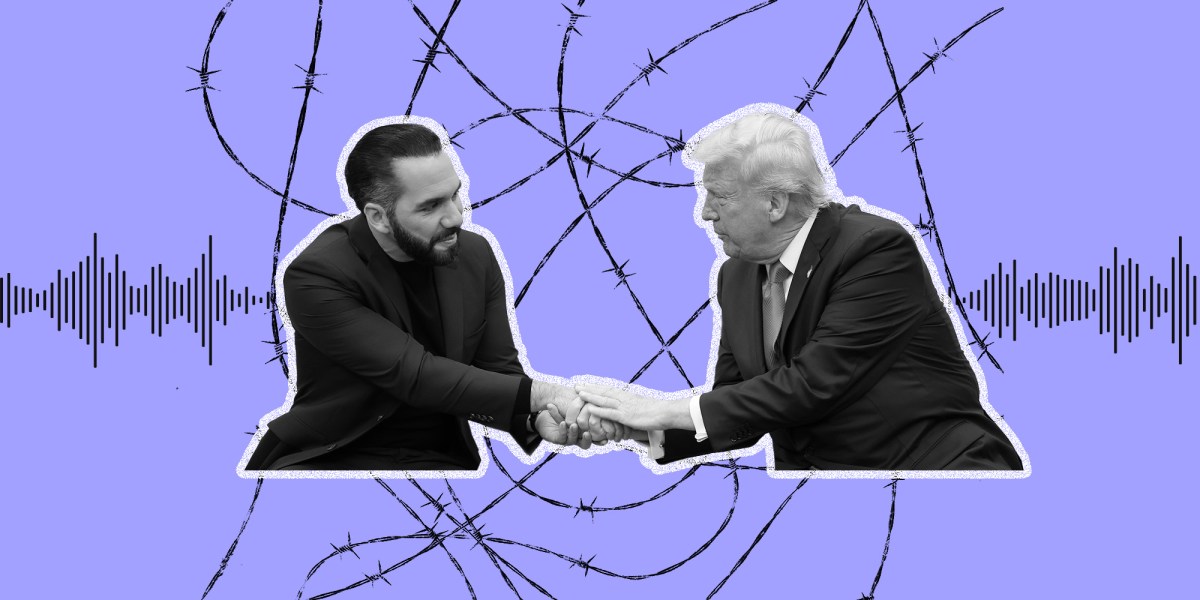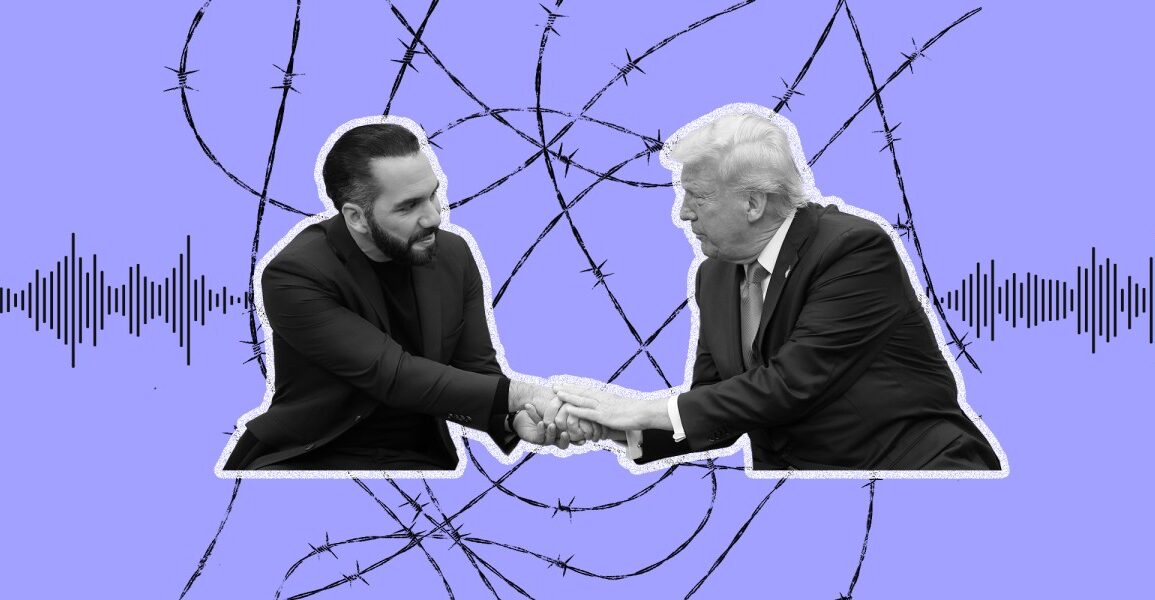
LATE SUNDAY NIGHT, police in El Salvador arrested one of President Nayib Bukele’s sharpest critics, Ruth Eleonora López, an anti-corruption attorney who has spent years exposing government abuses. “[She] is one of the strongest voices in defense of democracy,” says Noah Bullock, her colleague and the executive director of Cristosal, a human rights group operating in northern Central America, including El Salvador.
López, a university professor and former elections official, heads Cristosal’s anti-corruption unit. She has also been an outspoken critic of Bukele’s crackdown on gang violence that has resulted in “arbitrary detentions, human rights violations,” and the imprisonment of people not connected to gangs, according to Cristosal.
The organization has documented widespread abuses in the country’s prison system. “There’s a clear pattern of physical abuse, and on top of that, a clear pattern of systematic denial of basic necessities like food, water, bathrooms, medicine — medical care in general,” says Bullock. “Those two factors have combined to cause the deaths of at least 380 people” in custody in recent years. That’s a prison system “that’s been contracted by the U.S. government,” Bullock adds.
This week on The Intercept Briefing, Bullock speaks to host Jessica Washington about López’s continued imprisonment and what her work and detention reveals about the Trump administration’s interest in El Salvador’s prison system. Facing vague corruption charges, López has seen her family and lawyer but not yet a judge.
The U.S. is paying El Salvador $6 million to detain immigrants, including about 250 Venezuelan and Salvadoran men mainly at the infamous megaprison CECOT. “The type of jails and the prison system that the United States has contracted is one of a dictatorship — one that operates outside of the rule of law,” says Bullock.
But El Salvador isn’t the only country the U.S. is looking to partner with to outsource immigration detention. “Now in addition to El Salvador, the U.S. has reportedly explored, sought, or struck deals with at least 19 other countries,” says Nick Turse, national security fellow for The Intercept.
The countries include: Angola, Benin, Costa Rica, El Salvador, Eswatini, Equatorial Guinea, Guatemala, Guyana, Honduras, Kosovo, Libya, Mexico, Moldova, Mongolia, Panama, Rwanda, Saudi Arabia, Ukraine, and Uzbekistan. On Tuesday, the Department of Homeland Security sent eight immigrants to South Sudan, in defiance of a federal judge’s order, according to court filings.
“Many of these countries,” says Turse, “have been excoriated by not only human rights groups and NGOs, but also the U.S. State Department.” He continues, “Places like Equatorial Guinea, which is a notorious, kleptocratic dictatorship in West Africa — one of the most corrupt countries on the planet; and the kingdom of Saudi Arabia, which is another human rights pariah.”
“ These policies did not leap fully formed from the head of Donald Trump,” says Turse. They have a legacy largely stemming from the post-9/11 counterterrorism policies of the George W. Bush administration. “The Bush administration created this worldwide network of secret prisons and torture sites as part of its global war on terror.”
These are places outside of the jurisdiction of international law — legal black holes.
“The Trump administration has expanded the Bush and Obama-era terrorism paradigm to cast immigrants and refugees as terrorists and as gang members,” says Turse. “It’s reconceptualized this idea from the post-9/11 era of extraordinary rendition to seek to disappear people to sites … even further beyond the reach of U.S. law.”
Listen to the full conversation of The Intercept Briefing on Apple Podcasts, Spotify, or wherever you listen.
IT’S EVEN WORSE THAN WE THOUGHT.
What we’re seeing right now from Donald Trump is a full-on authoritarian takeover of the U.S. government.
This is not hyperbole.
Court orders are being ignored. MAGA loyalists have been put in charge of the military and federal law enforcement agencies. The Department of Government Efficiency has stripped Congress of its power of the purse. News outlets that challenge Trump have been banished or put under investigation.
Yet far too many are still covering Trump’s assault on democracy like politics as usual, with flattering headlines describing Trump as “unconventional,” “testing the boundaries,” and “aggressively flexing power.”
The Intercept has long covered authoritarian governments, billionaire oligarchs, and backsliding democracies around the world. We understand the challenge we face in Trump and the vital importance of press freedom in defending democracy.
We’re independent of corporate interests. Will you help us?
Latest Stories
This post was originally published on this site be sure to check out more of their content.









